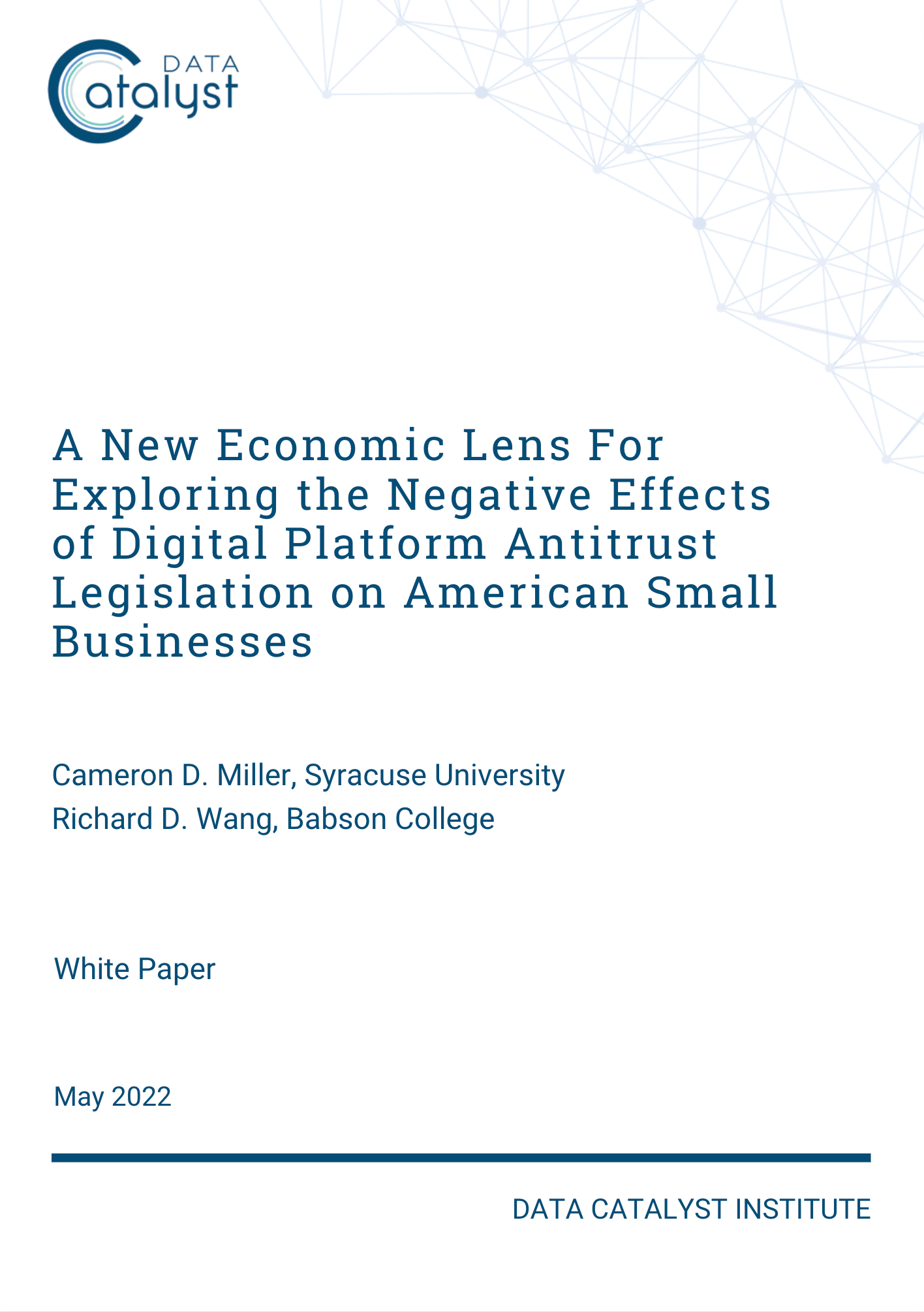
A New Economic Lens For Exploring the Negative Effects of Digital Platform Antitrust Legislation on American Small Businesses
May 2022
During the past few years, much of Washington – from Congress to the White House, Federal Trade Commission (FTC), and Department of Justice (DOJ) – has viewed very large tech companies, commonly referred to as “Big Tech,” through an “antitrust lens,” and specifically a “progressive” one (i.e., the neo-Brandesian antitrust movement) which discounts the role of market forces, presumes that “big is bad,” and frames the actions of digital platforms as anticompetitive and harmful to consumer welfare. However, a progressive antitrust lens is not the only way to analyze interactions between digital platforms and the participants in their networks, including millions of small businesses and billions of consumers. To the contrary, not only do we believe that using a [progressive] antitrust lens alone is the wrong way to analyze Big Tech platforms, but that it leads to an incomplete and misguided picture of economic reality of how complex, multi-sided platforms operate and are governed in practice.
Instead, we believe that something different which has developed in the academic literature over the past decade – the “platform governance” perspective – can help explain Big Tech platforms’ behavior that would be unnecessarily (and harmfully) prohibited by the progressive antitrust legislation proposed in Congress. From the platform governance perspective, platforms grow rapidly in order to create more value for participants on both sides of the platform (e.g., small business sellers and consumers, app publishers and app downloaders, etc.), and not to reduce competition on their platform. Once they become large, the platforms may not benefit much by restricting access and raising prices, but rather by enlarging the size of the overall market so that value increases for the ecosystem as a whole, which results in increasing value (or profits) for the vast majority of participating consumers, business users (e.g., small business sellers, small app publishers, etc.) and the platform owner itself.
Several members of Congress have openly expressed concerns about unintended negative consequences of regulating Big Tech platforms. In this paper, we apply the platform governance lens to reveal several significant potential unintended negative effects on small businesses. We also examine how the Big Tech platforms differ and conclude that any one size fits all progressive antitrust regulation will mostly likely fail to benefit consumers or third-party complementors like small businesses.
While the paper describes in more detail how the specific provisions of the progressive antitrust legislation would harm small and medium-size businesses (SMBs) that use the platforms, we summarize the key harms here for the two key kinds of tech platforms: Innovation Platforms that host tools and services for technological creation (e.g., a mobile app platform), and Transaction Platforms that host counterparties that conduct commerce with each other (e.g., an online marketplace for third-party sellers):
Summary of Progressive Antitrust Legislative Harms Related To Innovation Platforms
- Increased cost and uncertainty for independent publishers that develop apps
- Constrained performance of apps
- Degradation of the consumer experience, which will reduce demand for and willingness to pay for apps
Summary of Progressive Antitrust Legislative Harms Related To Transaction Platforms
- More “bad apple” sellers that harm other sellers by, for example, offering low quality products at cutthroat prices that squeeze others’ profits
- More “unhealthy” competition in which sellers generate sales but earn no profits
- Less platform support services and higher costs for sellers

A New Economic Lens For Exploring the Negative Effects of Digital Platform Antitrust Legislation on American Small Businesses
Cameron D. Miller and Richard D. Wang
May 2022